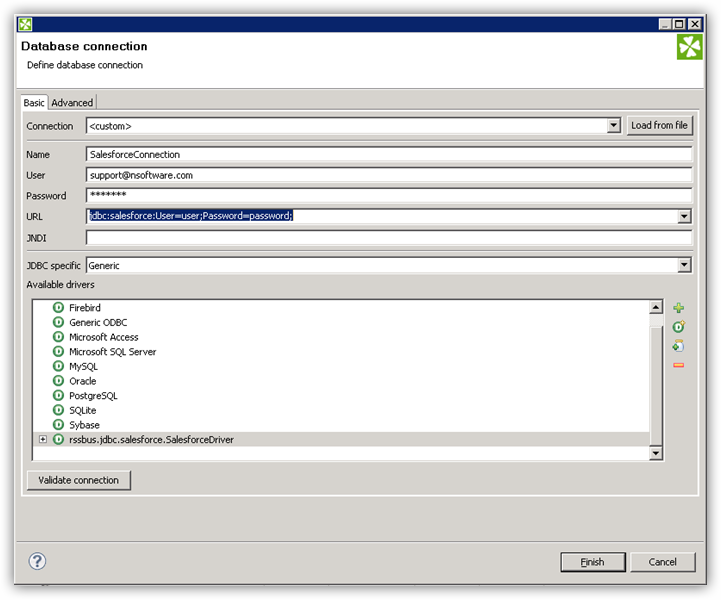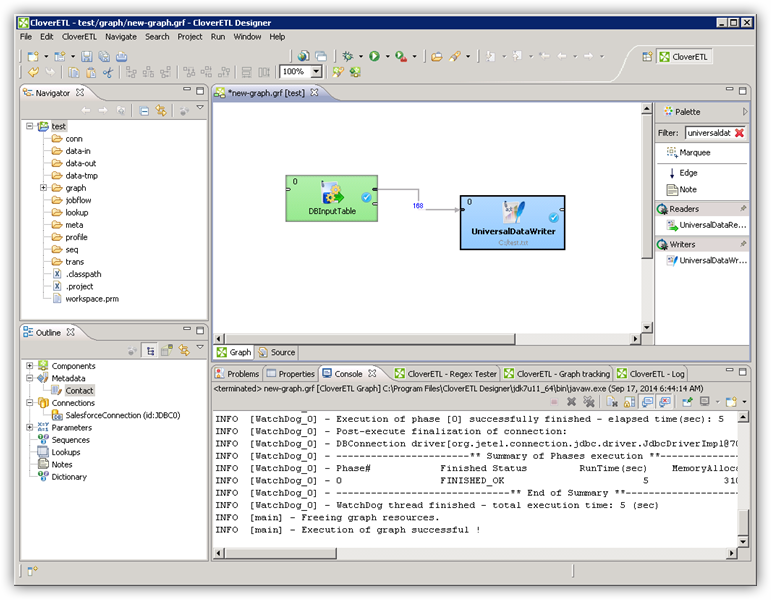Discover how a bimodal integration strategy can address the major data management challenges facing your organization today.
Get the Report →Connect to SAP Ariba Procurement Data in CloverDX (formerly CloverETL)
Transfer SAP Ariba Procurement data using the visual workflow in the CloverDX data integration tool.
The CData JDBC Driver for SAP Ariba Procurement enables you to use the data transformation components in CloverDX (formerly CloverETL) to work with SAP Ariba Procurement as sources. In this article, you will use the JDBC Driver for SAP Ariba Procurement to set up a simple transfer into a flat file. The CData JDBC Driver for SAP Ariba Procurement enables you to use the data transformation components in CloverDX (formerly CloverETL) to work with SAP Ariba Procurement as sources. In this article, you will use the JDBC Driver for SAP Ariba Procurement to set up a simple transfer into a flat file.
Connect to SAP Ariba Procurement as a JDBC Data Source
- Create the connection to SAP Ariba Procurement data. In a new CloverDX graph, right-click the Connections node in the Outline pane and click Connections -> Create Connection. The Database Connection wizard is displayed.
- Click the plus icon to load a driver from a JAR. Browse to the lib subfolder of the installation directory and select the cdata.jdbc.saparibaprocurement.jar file.
- Enter the JDBC URL.
In order to connect with SAP Ariba Procurement, set the following:
- ANID: Your Ariba Network ID.
- ANID: Specify which API you would like the provider to retrieve SAP Ariba data from. Select the Buyer or Supplier API based on your business role (possible values are PurchaseOrdersBuyerAPIV1 or PurchaseOrdersSupplierAPIV1).
- Environment: Indicate whether you are connecting to a test or production environment (possible values are TEST or PRODUCTION).
Authenticating with OAuth
After setting connection properties, you need to configure OAuth connectivity to authenticate.
- Set AuthScheme to OAuthClient.
- Register an application with the service to obtain the APIKey, OAuthClientId and OAuthClientSecret.
For more information on creating an OAuth application, refer to the Help documentation.
Automatic OAuth
After setting the following, you are ready to connect:
-
APIKey: The Application key in your app settings.
OAuthClientId: The OAuth Client Id in your app settings.
OAuthClientSecret: The OAuth Secret in your app settings.
When you connect, the provider automatically completes the OAuth process:
- The provider obtains an access token from SAP Ariba and uses it to request data.
- The provider refreshes the access token automatically when it expires.
- The OAuth values are saved in memory relative to the location specified in OAuthSettingsLocation.
Built-in Connection String Designer
For assistance in constructing the JDBC URL, use the connection string designer built into the SAP Ariba Procurement JDBC Driver. Either double-click the JAR file or execute the jar file from the command-line.
java -jar cdata.jdbc.saparibaprocurement.jarFill in the connection properties and copy the connection string to the clipboard.
![Using the built-in connection string designer to generate a JDBC URL (Salesforce is shown.)]()
A typical JDBC URL is below:
jdbc:saparibaprocurement:ANID=AN02000000280;API=PurchaseOrdersBuyerAPI-V1;APIKey=wWVLn7WTAXrIRMAzZ6VnuEj7Ekot5jnU;AuthScheme=OAuthClient;InitiateOAuth=GETANDREFRESH

Query SAP Ariba Procurement Data with the DBInputTable Component
- Drag a DBInputTable from the Readers selection of the Palette onto the job flow and double-click it to open the configuration editor.
- In the DB connection property, select the SAP Ariba Procurement JDBC data source from the drop-down menu.
- Enter the SQL query. For example:
SELECT DocumentNumber, Revision FROM Orders WHERE OrderStatus = 'CHANGED'
Write the Output of the Query to a UniversalDataWriter
- Drag a UniversalDataWriter from the Writers selection onto the jobflow.
- Double-click the UniversalDataWriter to open the configuration editor and add a file URL.
- Right-click the DBInputTable and then click Extract Metadata.
- Connect the output port of the DBInputTable to the UniversalDataWriter.
- In the resulting Select Metadata menu for the UniversalDataWriter, choose the Orders table. (You can also open this menu by right-clicking the input port for the UniversalDataWriter.)
- Click Run to write to the file.








